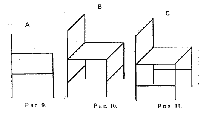Against Method
PRODUCTORA
'Young Architects 9, PROOF', Princeton Architectural Press & Architectural League of New York, Nueva York, 2008
(Texto en inglés)
Paul Feyerabend's epistemological masterpiece, Against Method, was first published as an essay in 1970; as the title suggests, it is a criticism of the idea that science has only a single method to expand the scope of knowledge. Feyerabend describes the history of science as a complex fabric of serendipity, poetic challenges, erroneous observations, and hazardous discoveries in a continuous dialectic with rational and scientific procedures. Contradiction and irrationality are, therefore, just as much a part of a strategy as the established scientific roads to enlightenment, and are particularly important in the challenging of fundamental assumptions that lead to revolutions or paradigm shifts.
We draw the same conclusions in the field of architecture. Our architectural projects always start with an anarchic series of intuitive explorations. Sometimes they are linked to specific environmental parameters, budget limitations, or programmatic necessities; in other occasions, they are mere formal explorations accomplished through drawings or models. There is no way to judge the supremacy of one method over the other. The only way to discover the value of an initial intuition is by developing the project, to make headway. When a strong diagram loses its power during the course of a project, perhaps the initial axioms were wrong. When, on the contrary, the conceptual idea becomes stronger, and we begin to perceive a correspondence between the starting point and the resulting solutions (technical, structural, architectonic), we can call the project "proven".
Image caption:
Illustration from Paul K. Feyerabend, Against Method: Outline of an Anarchistic Theory of Knowledge, 1975




